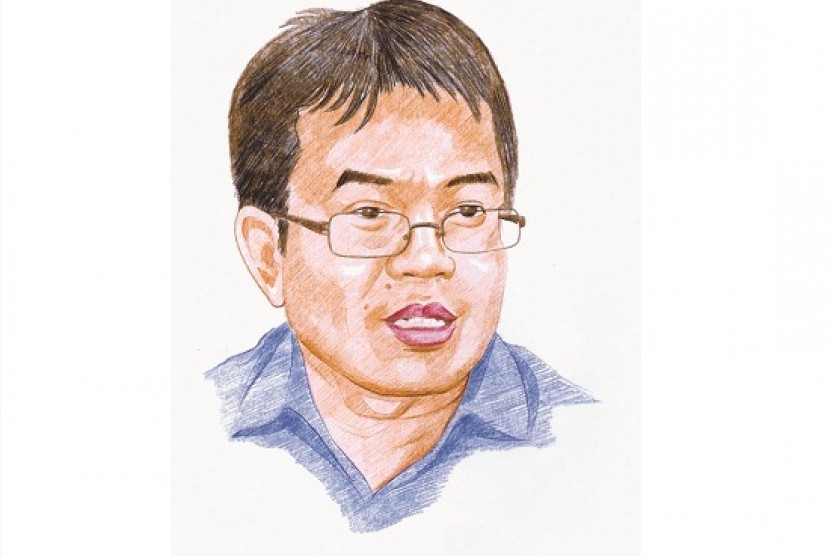REPUBLIKA.CO.ID, by: Yudi Latif
Writing in a progress inspire magazine, Bintang Hindia (volume no. 14/1905: 159), Abdul Rival defines kaoem moeda or the youth as 'all Dutch East Indies people (young or old) who are no longer willing to follow atoeran koeno or outdated values, but otherwise eager to reach confidence through knowledge and ilmoe' or science.
Since then, the term of younger generation or youth is always sealed with the quality of their knowledge/educational entities as reflected in the term of pemuda-pelajar or youth-student. Dutch term of jong, which was often used to name student-youth organization in the early decades of the 20th century, did not refer randomly to any youth, but has a special connotation in 'the young-the educated-the knowledgeable'. This kind of youth who later gave birth to 'Youth Pledge' on October 28, 1928, as a milestone in the creation of Indonesian nationality.
With knowledge capacity, younger generation broke the inertia of the elder with their 'eureka' of politics. In which, even until the early 20th century, Malay-Indonesian language did not have a specific word for 'politics'; but more importantly, through the process of thought for colonial subjects, they began to formulate a vision and an ideology for political struggle.
The purpose of the youth movement is national independence. In the realm of Indonesian thought, independence also contains prerequisite knowledge. The word 'freedom' itself is etymologically derived from Kawi/ Sanskrit maharddhika, which means 'monk/bichu' for 'sacred, very thoughtful/knowledgeable (alim)'. In ancient Javanese (Kawi), this word is often ascribed to the pandita or the Buddhist monks, who have sublime knowledge and wisdom which occupy high social stratification. Viewed from this angle, the struggle for independence reflected emancipatory ideas to free themselves from various forms of inequality in the distribution of honor and ownership by strengthening the knowledge/wisdom.
With full awareness of the glory of knowledge/wisdom, the idea of sovereignty of the people was about to be earthed. Democracy which idealized by the Founding Fathers was not based on the legitimacy of majority rule, but on deliberative forces (known as permusyawaratan) relying on the power of scientific rationality and wisdom.
Fourth principle of Pancasila, "Democracy guided by the inner wisdom of deliberations/representatives" contains some natural characteristics of democratic thought in Indonesia: ideals of democratic, deliberation, and wisdom or hikmat-kebijaksanaan.
Democratic ideals are honoring the voice of the people in politics; by opening a way for the role and influence played by the people in the decision-making process undertaken by the government. Deliberative ideals radiated the will to bring national unity to overcome individuals and groups ideology, as a reflection of the spirit of brotherhood and plurality of Indonesia's nationhood by recognizing the existence of equality in difference.
Hikmat-Kebijaksanaan ideals reflected ethical orientation, as required by the 1945 Constitution of the Republic of Indonesia that the composition of the sovereignty of the people should be based on the values of divinity, humanity, unity, and deliberation as well as justice. Ethical orientation is switched on via the power of rationality, consensual wisdom, and commitment to justice that can bring a positive tolerance and synthesis as well as to prevent power controlled by 'mayorokrasi' and 'minorokrasi' (majoritarianism-minoritarianism).
When the strength of the argument of hikmat-kebijaksanaan stop, things that could be happened were two destructive possibilities. First, negative tolerance which leads to political horse-trading practices for short-term interests. Secondly, 'the power of logic' to be replaced with 'logic of power' which cover democracy project with conflict cum anarchy in the streets.
At this point, this is a critical point of the development of democracy in Indonesia. Means, a tidal wave of democratic freedom in Indonesia is in conjunction with the receding wave of knowledge capital. The literacy level and breadth of Indonesia's human erudition is encountered with the cult of cultural shallowness by excessive attention to material and practical interests. Universities and other educational institutions as a bastion of science undergo a leaching process of intellectual excitement, eroded by dominance ethos of managerialism and instrumentalism; an ethos that values art, culture, and educational instrument to serve practical purposes. This kind of politic is not led by hikmat-kebijaksanaan, but by the power of pragmatism and money.
Any attempt to peg back Indonesia's dignity should consider the nature of Indonesia-ness with the struggle for the emancipation based on the power of youth and knowledge. For that purpose, the Youth Pledge Day should be a momentum to revive the ethos of young people, people who want to achieve a sense of confidence and progress through the power of knowledge.


